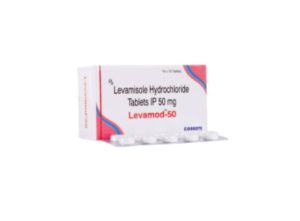
Ceftizoxime Overview:
Description:
Ceftizoxime is a third-generation cephalosporin antibiotic used to treat a variety of bacterial infections. It works by inhibiting bacterial cell wall synthesis, leading to the death of susceptible bacteria. Ceftizoxime is effective against a broad spectrum of Gram-negative and some Gram-positive bacteria.
Available Forms & Strengths:
- Injection (IV/IM):
- 500 mg
- 1 g
- 2 g
Uses:
- Respiratory tract infections (e.g., pneumonia, bronchitis)
- Urinary tract infections (UTIs)
- Intra-abdominal infections
- Skin and soft tissue infections
- Gynecological infections (e.g., pelvic inflammatory disease)
- Septicemia (bloodstream infections)
Side Effects:
- Nausea and vomiting
- Diarrhea
- Allergic reactions (rash, itching, anaphylaxis)
- Injection site reactions (pain, swelling)
- Increased liver enzymes
- Rare: Hematologic changes (e.g., thrombocytopenia, neutropenia)
Dosage:
- Adults: Typically 1 to 2 g every 8 to 12 hours, depending on the type and severity of the infection.
- Severe infections: Dosages may be increased up to 4 g per day.
- Renal impairment: Dosage adjustments may be needed in patients with kidney dysfunction.
Contraindications:
- Hypersensitivity to ceftizoxime, other cephalosporins, or any components of the formulation.
- Cross-reactivity with penicillin may occur in patients allergic to penicillins.
Warnings:
- Hypersensitivity Reactions: Risk of severe allergic reactions, including anaphylaxis, especially in patients with a history of penicillin allergy.
- Clostridium difficile-associated diarrhea: May occur with prolonged antibiotic use, potentially leading to severe colitis.
- Renal Impairment: Dosage adjustment is required in patients with kidney dysfunction to prevent drug accumulation.
- Superinfection: Prolonged use may result in the growth of non-susceptible organisms, including fungi.
- Hematologic Changes: Monitoring may be required for blood counts, as ceftizoxime can cause changes in white blood cells and platelets.
Special Instructions:
- Complete the full course of therapy to prevent the development of drug-resistant bacteria.
- Monitor for signs of allergic reactions, especially in patients with a history of beta-lactam allergy.
- Adjust dosing in patients with impaired renal function to prevent drug accumulation.
- If severe diarrhea occurs, inform your doctor, as it could be a sign of C. difficile infection.







